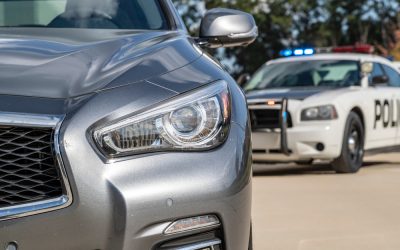Are you facing charges under California Vehicle Code Section 10851(a)? The consequences could be severe when you are accused of driving or taking a vehicle without consent. You must take action to defend yourself when you have been accused of an offense of this nature.
Reach out to an aggressive California criminal defense attorney to learn more about which defenses may be most favorable in helping you secure an acquittal.
What Is California Vehicle Code 10851(a)?
Under California Vehicle Code §10851(a), it is illegal for someone to take another person’s vehicle without that person’s consent. Driving or taking a vehicle without consent may be referred to as joyriding. Some examples of joyriding could include:
- Borrowing a friend’s car without their permission
- Hotwiring someone’s car so you can make it to your intended location
- Taking a parent’s car without their consent
If the prosecutor hopes to obtain a guilty verdict for joyriding, they will need to show that the elements of the offense have been met as follows:
- The defendant took or drove another person’s vehicle
- The defendant did not obtain the vehicle owner’s consent or permission before them taking or driving the owner’s vehicle
- The defendant intended to deny the vehicle’s owner of their vehicle for any amount of time
It does not matter whether you were only denying the vehicle owner their vehicle temporarily or permanently. Borrowing or stealing another person’s vehicle is grounds for a joyriding charge under California Vehicle Code §10851. Call our office to schedule an appointment with an experienced Los Angeles DUI attorney.
Offenses Related to CA Vehicle Code §10851
There are multiple other criminal offenses you could be charged with about California Vehicle Code §10851(a). Some of the more common offenses include:
- Grand theft under California PC 487 – When the theft of property is valued at greater than $950, you can be charged with grand theft, which is a wobbler offense and means you could be charged with a misdemeanor or a felony based on the item’s value, your criminal record, and other factors. If convicted, you could face up to three years in county jail.
- Grand theft auto under California PC 487(d)(1) – Grand theft auto charges mean you have been accused of permanently taking someone else’s vehicle. This is a wobbler offense, so you could be charged as a misdemeanor or a felony based on the specific circumstances of your case, and if convicted, you could be facing as much as three years in jail in addition to other criminal penalties.
- Malicious mischief to a vehicle under California VC §10853 – When you damage, deceased, or destroy a motor vehicle without the vehicle owner’s permission, you can be charged with a misdemeanor offense. If you are found guilty of malicious mischief, you could face up to six months in county jail and other criminal and collateral consequences.
- Auto burglary under California PC 459 – You could face auto burglary charges when you are accused of entering a locked vehicle or trunk to steal the vehicle or any property within the vehicle or commit a crime inside the vehicle. This is considered second-degree burglary, a wobbler offense, and if you are charged at the misdemeanor level, you could face up to one year in county jail or up to three years in a California state prison for a felony conviction.
When you have questions about the charge of driving or taking a vehicle without consent, talk to a DUI lawyer in Los Angeles, CA. Our experienced criminal defense attorneys are here to fight for your rights and ensure that you are not taken advantage of during the legal process. Give us a call today to schedule an appointment. Do not let the justice system fail you.
Penalties of a Conviction Under CA Vehicle Code 10851
If you are found guilty under California Vehicle Code §10851(a), the penalties can vary based on whether you were charged at the misdemeanor or felony level. If you were charged with misdemeanor joyriding, you could expect to spend as much as one year in county jail and pay fines as high as $5,000. If you were charged with felony joyriding, you could expect to spend up to three years in a California state prison and be ordered to pay fines as high as $10,000.
You could expect increased penalties if certain aggravating factors apply, such as:
- The use of a deadly weapon
- Having a prior felony conviction on your record
- Theft of a law enforcement vehicle, fire truck, ambulance, or another government vehicle during an emergency
You might also expect to have your license suspended, be ordered to participate in community service, be placed on probation, and complete a drug or alcohol treatment program. Your attorney can give you a better idea of which consequences you could face after carefully reviewing your case’s circumstances. Contact an experienced Los Angeles DUI lawyer today to discuss your case and review the options you have to fight the charges of driving or taking a vehicle without consent.
Challenging Charges Under CA Vehicle Code 10851
Defending yourself when you have been charged with taking a vehicle without consent under California Vehicle Code §10851(a) can be challenging. However, certain defenses could be used to obtain a charge reduction, dismissal, or acquittal. These defenses include:
- You had the owner’s consent – The prosecutor can only obtain a conviction for joyriding if you do not have the owner’s consent to take the vehicle. However, this consent cannot be presumed for this defense to be viable.
- You believed you were the owner of the vehicle you took – If you were the rightful owner of the vehicle and are questioned, you should not be convicted of a crime under California Vehicle Code §10851(a). Your attorney will need to closely evaluate your claim of right to determine who the vehicle owner or owners are.
- You were under duress – If you were forced to take someone else’s car, you should not be found guilty of joyriding or taking a vehicle without consent under California law. Had you not been under duress, it is unlikely that you would have committed the act in question.
Talk to an experienced DUI attorney in Los Angeles, CA, today about the charges levied against you. The sooner you schedule an appointment, the less challenging it becomes to fight these charges. You should never have to face criminal charges alone. You do not know the ins and outs of the law. Our attorneys do. Call us today to schedule an appointment.
Contact a Criminal Defense Attorney in California Today
If you previously thought charges under California Vehicle Code §10851(a) were minor, you may be shocked at the potential consequences you are facing.
Prepare the strongest defense possible when you contact an experienced California criminal defense lawyer for help. Schedule your confidential case evaluation by filling out our quick contact form or calling us to discuss the specific details of your case. We will fight to ensure your rights are protected throughout the entire legal process.






